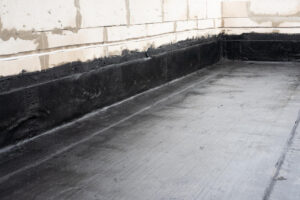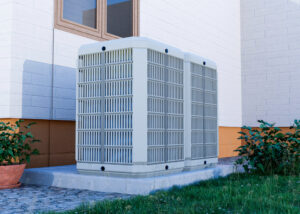Commercial Chiller Repair play a vital role in maintaining controlled temperatures for businesses in industries such as food service, manufacturing, healthcare, and data centers. These systems are essential for ensuring efficiency and continuity in operations. However, like any mechanical equipment, chillers are prone to wear and tear, requiring periodic maintenance and repair.
In this comprehensive guide, we’ll explore the importance of commercial chiller repair, common issues, the repair process, and tips for extending your chiller’s lifespan.
Importance of Commercial Chiller Repair
Commercial chillers are often the backbone of temperature-sensitive operations. Malfunctioning chillers can lead to a host of issues, including:
- Production Loss: In manufacturing or industrial processes, a faulty chiller can cause production delays and financial losses.
- Spoiled Goods: In the food and beverage industry, inadequate cooling can spoil perishable items, leading to wasted inventory and revenue.
- Energy Inefficiency: A malfunctioning chiller often consumes more energy, increasing utility costs.
- Compliance Risks: Industries like healthcare and pharmaceuticals require strict temperature controls. A breakdown can lead to regulatory violations.
Regular maintenance and timely repairs not only prevent costly downtime but also optimize system performance and energy efficiency.
Common Commercial Chiller Problems
1. Refrigerant Leaks
Refrigerant leaks can occur due to corrosion, wear, or damage. Low refrigerant levels reduce the chiller’s cooling capacity and may lead to overheating.
2. Compressor Issues
The compressor is the heart of a chiller. Problems like motor failure, electrical issues, or mechanical wear can cause the entire system to malfunction.
3. Condenser Coil Problems
Dirty or clogged condenser coils impede heat transfer, reducing the efficiency of the cooling system.
4. Water Flow Issues
For water-cooled chillers, blockages, scaling, or pump malfunctions can disrupt water flow and compromise performance.
5. Electrical Failures
Faulty wiring, blown fuses, or circuit board issues can cause operational disruptions.
6. Sensor Malfunctions
Faulty temperature or pressure sensors can provide inaccurate readings, leading to improper system adjustments.
The Commercial Chiller Repair Process
Repairing a commercial chiller is a specialized task requiring expertise and proper tools. Here is an overview of the process:
1. Initial Inspection and Diagnosis
A technician begins by inspecting the chiller to identify the problem. This may involve:
- Checking for visible damage or leaks.
- Testing electrical components.
- Measuring refrigerant levels and pressures.
- Reviewing error codes from the chiller’s control system.
2. Repair Plan
After diagnosing the issue, the technician formulates a repair plan. This includes:
- Estimating costs and required time.
- Procuring replacement parts if needed.
- Discussing the plan with the client for approval.
3. Repair Execution
Repairs may include:
- Fixing refrigerant leaks and recharging the system.
- Replacing faulty components like compressors, sensors, or valves.
- Cleaning condenser and evaporator coils.
- Flushing and treating water systems in water-cooled chillers.
4. Testing and Calibration
Once repairs are complete, the technician tests the chiller to ensure proper operation. This involves:
- Verifying temperature settings and cooling performance.
- Checking pressure and flow rates.
- Calibrating sensors and controls.
5. Final Report
The technician provides a detailed report outlining the repairs performed, parts replaced, and recommendations for future maintenance.
Benefits of Hiring Professional Chiller Repair Services
Hiring a qualified professional for commercial chiller repair offers several advantages:
- Expertise: Certified technicians have the knowledge and tools to diagnose and fix complex issues.
- Safety: Handling refrigerants and high-voltage equipment requires strict safety protocols.
- Cost-Effectiveness: Proper repairs prevent recurring problems and expensive downtime.
- Compliance: Professionals ensure repairs meet industry standards and regulations.
Preventive Maintenance Tips for Commercial Chillers
To minimize repair needs and extend the life of your commercial chiller, follow these maintenance tips:
1. Regular Cleaning
Clean condenser and evaporator coils to prevent dirt and debris buildup.
2. Monitor Refrigerant Levels
Ensure refrigerant levels are within the recommended range to maintain cooling efficiency.
3. Inspect Electrical Components
Check wiring, fuses, and connections for signs of wear or damage.
4. Check Water Flow
For water-cooled systems, ensure pumps and piping are free of blockages.
5. Schedule Routine Inspections
Hire professionals for periodic system inspections and tune-ups.
6. Invest in Predictive Maintenance
Use advanced monitoring tools to detect issues before they escalate.
When to Replace Your Commercial Chiller
While repairs can resolve most issues, there are times when replacing the chiller is a more viable option. Consider replacement if:
- The system is over 15-20 years old.
- Repair costs exceed 50% of the unit’s replacement value.
- Energy bills remain high despite repairs and maintenance.
- The chiller’s capacity no longer meets operational needs.
Upgrading to a newer, energy-efficient model can provide long-term savings and enhanced performance.
Choosing the Right Commercial Chiller Repair Service
Selecting a reliable repair service is critical for minimizing downtime and ensuring quality repairs. Here are some factors to consider:
- Experience: Look for companies with a proven track record in chiller repair.
- Certifications: Ensure technicians are certified and trained to handle your specific chiller model.
- Availability: Choose a service provider offering 24/7 emergency repairs.
- Reputation: Read reviews and ask for references to gauge customer satisfaction.
- Warranty: Opt for services that offer warranties on parts and labor.
Conclusion
Commercial chiller repair is essential for maintaining optimal performance and reducing operational disruptions. By understanding common issues, the repair process, and preventive maintenance practices, businesses can enhance their chiller’s reliability and lifespan. Whether it’s a minor fix or a major overhaul, partnering with a trusted repair service ensures your cooling system operates at peak efficiency.









